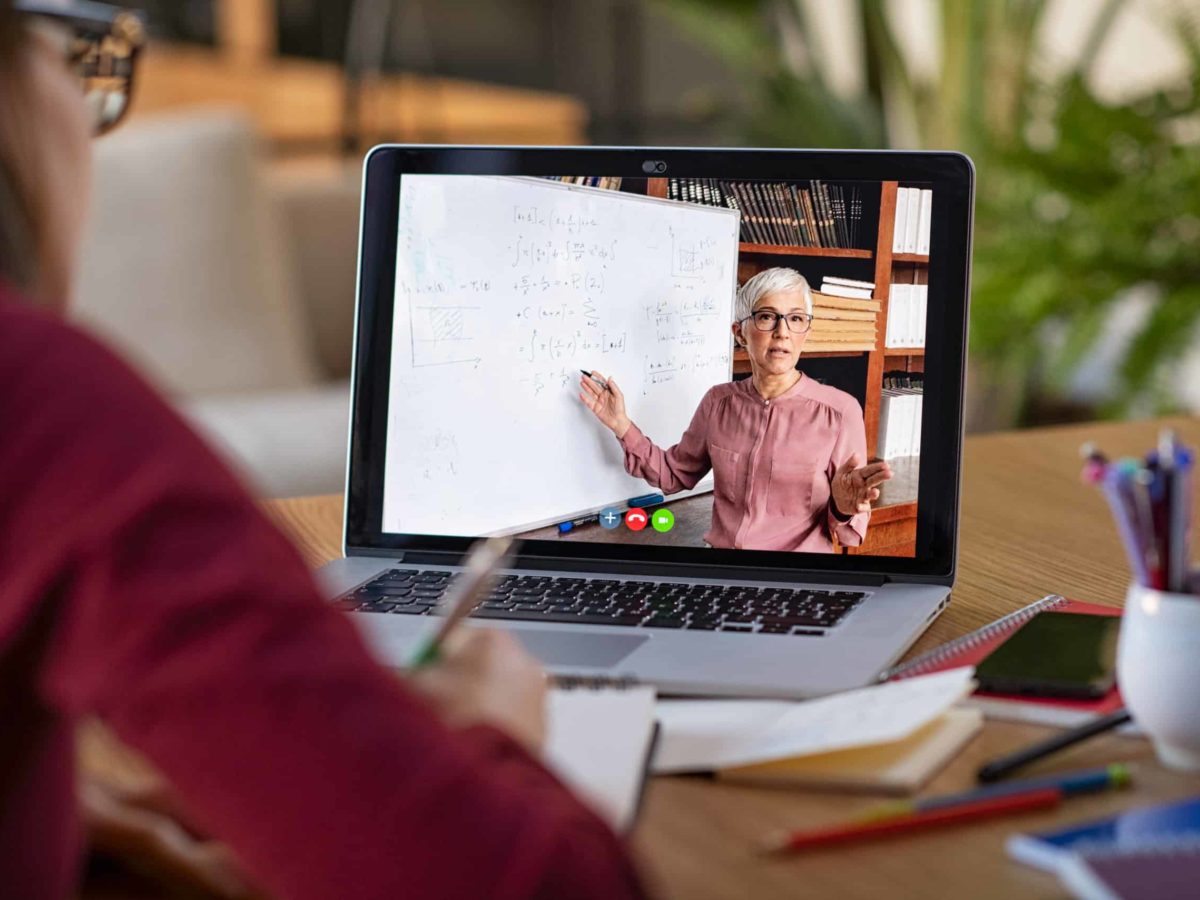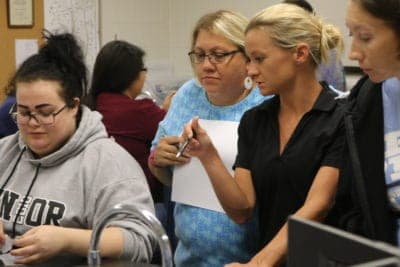
How might the “new normal” brought about by the COVID-19 contagion influence the lives of Americans in 2025?
The Pew Research Center and the Imagining the Internet Center at Elon University asked “915 innovators, developers, business and policy leaders, researchers and activists” to respond to a series of questions designed to capture their current thinking on near-term significant societal changes. In a lengthy report released last week, Pew offered this summary:
“Their broad and nearly universal view is that people’s relationship with technology will deepen as larger segments of the population come to rely more on digital connections for work, education, health care, daily commercial transactions and essential social interactions. A number describe this as a ‘tele-everything’ world.”
The Pew-Elon researchers posed their questions in mid-2020, after the pandemic had taken hold but before the presidential election. They describe the project as a canvassing of thought leaders, not a scientific polling of general public opinion. Their report, which provides an extensive collection of written responses, places findings into two broad categories: worries and hopes.
Nearly five out of 10 respondents warned that life will be “mostly worse” for most people four years from now. The principal worries that emerged: an intensification of economic inequality, an enhancement of the power of big technology companies, threats of job loss, challenges to mental health, and the spread of misinformation as “polarized populations wage warring information campaigns with their foes.”
Four out of 10 respondents said life would become “mostly better” for most people after the pandemic. The opportunities that foster a sense of hopefulness: the potential for “new reforms” that promote racial justice, flexible work arrangements that bolster quality family life, and new technology advances that improve health care, education, and community living.
For the purpose of stimulating educators and policymakers to think about post-pandemic prospects for schools, colleges, and universities, I’ve cherry-picked quotations from three scholars who responded to the Pew-Elon canvass:
“Five years from now I expect that working from home will be normalized for most white-collar industries. The pandemic has shown us that people can be productive without an office environment … The immense difference in the U.S. between people who have caregiving responsibilities at home and those who do not will not change without systemic investment in child care, elder care and disability benefits. The difference between parents who can afford to hire nannies, teachers or tutors for their children and those who cannot will manifest in greater educational inequality along lines of race, class and income level.”
Alice E. Marwick, assistant professor of communication at the University of North Carolina at Chapel Hill
“Forced virtual schooling (where most parents are also forced into part-time homeschooling as well) forces state public school systems to create virtual curricula, which is then available to non-local, non-physical attending students, including traditional homeschoolers. Competition for quality and the digital nature of the content transforms the education system into a hybrid physical-virtual system, where access and quality of content and instructors is better distributed. The MOOC (online-course) revolution in college and professional training will accelerate into the primary/secondary grade levels, and commercial education content providers will grow dramatically as parents of even public school children are able to augment their kids’ education with high-quality commercial sources, cafeteria-style at low costs.”
Sam S. Adams, a 24-year veteran of IBM now working as a senior research scientist at RTI International
“The reimagining of the classroom for digital life is still underway, but we can expect both the practice and expectations of learning to be changed radically by tech. Mentorship, whether in the classroom, laboratory, or at work, is indispensable. Tools for collaboration will be extended and embraced. If tech and policy align correctly, this will make our lives better.”
Paul Jones, professor emeritus of information science at the University of North Carolina at Chapel Hill
The Pew-Elon report, to be sure, is not specifically about education, though it offers insights for North Carolina educators and education policymakers. If there is an overriding consensus about the post-pandemic future, it is that “telemedicine, telework, tele-learning and tele-life” will spread.
In a post-pandemic, “tele-everything” world, says the report, “The best and worst of human nature are amplified: The crisis is enhancing digital interconnectedness that engenders empathy, better awareness of the ills facing humanity and positive public action. On the flip side, some individuals, cities and nation-states will become more insular and competitive as survival mode kicks in. Xenophobia, bigotry and closed communities will also increase.”
At such a moment of choices between conflicting forces, leadership matters. The challenges faced by North Carolina leaders in education, business, and public life center on diminishing the worrisome and elevating the hopeful.
Recommended reading



